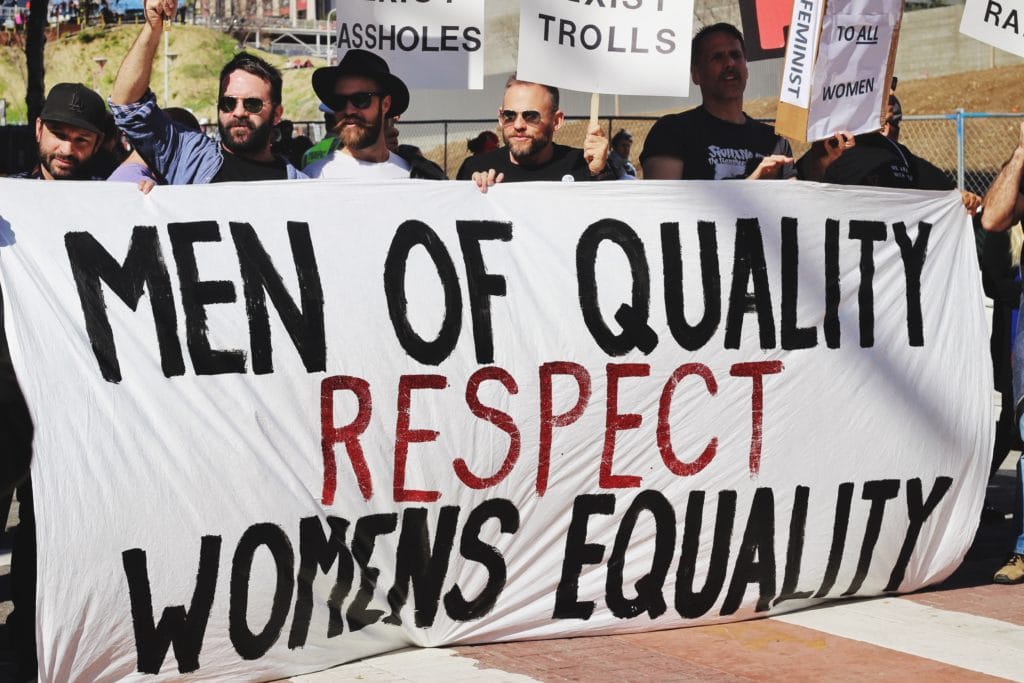Female Entrepreneurs: Changing society for the better

This article is co written by the authors of recently published ‘Female Entrepreneurs – the Secrets of their Success’ to encourage society to recognise and embrace the huge value that female entrepreneurs bring to our economy.
By Ruth Saunders, Founder, On Point & John Smythe, Co founder Engage for change

Female entrepreneurship is growing at a faster rate than male entrepreneurship. A number of U.S. and U.K. reports indicate that, once started, female-led start-ups are more profitable than their male-led counterparts.
Yet, today, women make up only one third of all U.K. entrepreneurs, less than 20% of leaders of small to medium-sized enterprises (SMEs), and less than 10% of leaders of entrepreneurial start-ups in the science, engineering and technology sectors.
Below is some wisdom and insights from our 52 female entrepreneurs to inspire everyone in society to help make entrepreneurship a more even playing field for women.
Taking women in business seriously
Women are still not taken as seriously as men in business. Our interviewees are regularly asked about their age, marital status and family, and how they manage to juggle both children and career, over and above their entrepreneurial venture and business success.
Yet the same question is rarely if ever asked to men.
As Tori Gerbig, a millennial mum and the successful entrepreneur behind Pink Lily says:
“How different would this conversation be if we stopped quietly judging our ambitious young women and successful female business leaders, but instead started asking them what they love about work? What gets you excited about work each day? Which of your professional accomplishments most shifted the trajectory of your career? Why do you do what you do? Perhaps before we can reach the point where we embrace our ambitious working mothers, we need to better understand their points of view.”
Men need to help women

There’s much in the press about how women still tend to take the lion’s share of the domestic housework. A recent study showed that women still shoulder the bulk of housework, even when both people work full-time.
On average, full-time working women spend between 10 to 19 hours on housework weekly, whereas their partners average fewer than 5 hours per week. And fewer than 7% of U.K. couples share housework equally.
As Professor Gillian Robinson who conducted a similar survey says:
‘It is difficult to see how women will ever have the same opportunities in the labour market if equality at home is not achieved.’
We implore men to step up and shoulder more of the household chores and for society to make gender equality at home the only acceptable norm.
Women need to help other women

Many of our female entrepreneurs talked about successful men encouraging them in their careers rather than successful women.
And, in some cases, successful women not helping other women to succeed. ‘Queen Bee’ women think that their gender should be irrelevant at work but, when discriminated against, realise that others see them first and foremost as women.
They get concerned that as women their career path may be stunted, so, they distance themselves from other women. For example, by saying: ‘I’m not like other women, I’ve always prioritized my career’.
If we want to make the corporate environment more gender equal, it’s important that successful women support other women.
“There is a special place in hell for women who don’t help each other!’.
Madeleine Albright
Women need to help themselves, leaning in AND leaning out

In 2015, Sheryl Sandberg wrote the provocative book ‘Lean In’ which was countered by the equally provocative book ‘Lean Out’ by Dawn Foster.
These two books raised the heated debate of whether women should be working harder to fit into the male-dominated corporate world (by ‘leaning in’), or whether the corporate world should be doing more to accommodate women (by ‘leaning out’).
Many of our interviewees believe that a mixture of the two is needed, at least until the playing field is levelled.
If society wants to leverage the huge female talent pool, it needs to ‘lean out’ by challenging the traditional male-orientated ways of working.
Corporations need to make work for all women, including young mothers, a tenable choice, as well as the ability to rise to the top a credible and aspirational option.
That said, women also need to help drive the change by ‘leaning in’ – driving their own success by taking responsibility for their careers, decisions and actions.
In summary
We implore society to recognise and embrace the huge value that female entrepreneurs bring and help make entrepreneurship a more level playing field for women by encouraging:
- Women to be taken as seriously as men in business.
- Celebrating rather than judging successful working women who are juggling career and family.
- Men to help women more, as in the words of Professor Gillian Robinson: ‘It is difficult to see how women will ever have the same opportunities in the labour market if equality at home is not achieved’.
- Women to help other women more, by encouraging and supporting them as they rise up their career path.
- Women to ‘lean in’ to help drive the change, as well as society to ‘lean out’ by challenging the traditional male-orientated ways of working to create a more flexible, female-friendly working environment.
The authors
Ruth Saunders uses her 30 years of experience as a strategy consultant and marketer to FMCG’s to help clients be ‘On Point’. She is the author of “Marketing in the Boardroom: Winning the Hearts and Minds of the Board.”
Connect with Ruth on linkedin
John specialises in engaging employees in developing business strategy and organisational change at “Engage for Change” and authored ‘The Velvet Revolution at work’, ‘The CEO: The Chief Engagement Officer’ and ‘Corporate Reputation – Managing the New Strategic Asset’.
Connect with John on linkedin
